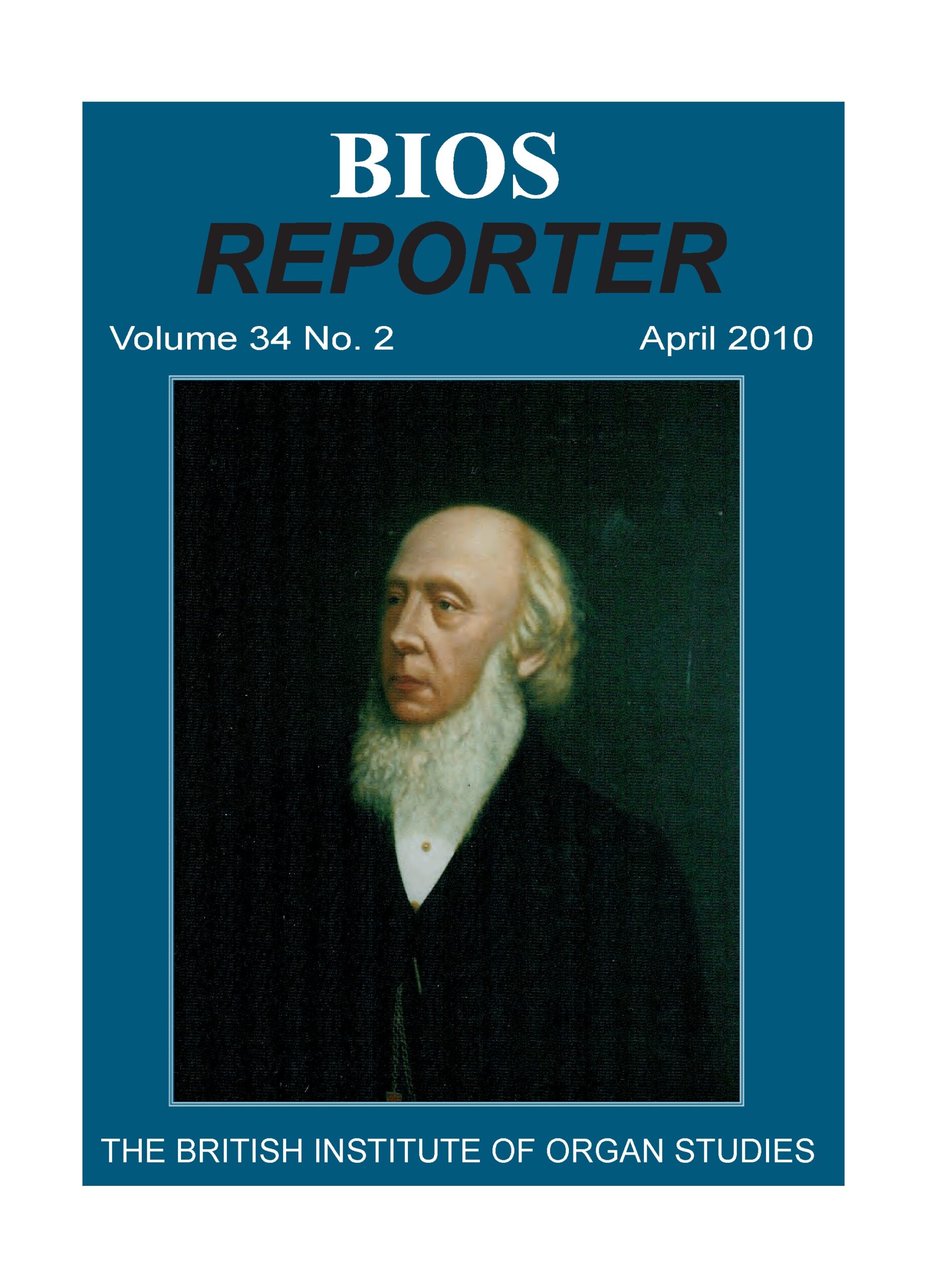In a recent editorial I encouraged BIOS members to (literally) dig up ancient organs. In my enthusiasm for this noble pursuit I neglected to mention that other treasures such as long-lost or forgotten music are still to be found and that they can also give us valuable information on organs that may have disappeared a long time ago. I was recently reminded of this possibility by learning of the remarkable discovery of a manuscript collection of seventeenth-century keyboard music. In 2004 Peter Leech, a conductor and musicologist, bought a leather-bound finely-tooled and gilded book of manuscript music in a London second-hand bookshop. On closer inspection the volume was found to be a collection of keyboard music compiled by a Jesuit musician, probably Antoine Selosse (1621–1687). Selosse, otherwise known as Padre Antonio Mason, was active at the English Jesuit College at St Omer in the 1680s. Only one of the pieces has an attributed author – John Bull – and a number of the pieces are the same or very similar to those in another manuscript owned by Christopher Hogwood. Of particular interest to BIOS members is the fact that there are registration markings on a few pieces that suggest they were played on an organ. A recording of all the pieces in the Selosse manuscript by Terence Charlston, using a variety of keyboard instruments, will appear shortly on the Deux-Elles label. The organ pieces make use of the St Botolph Aldgate organ which has been recently restored to its virtually original 1704 state, including a suitably piquant meantone tuning. There is another important aspect to the Selosse manuscript and that is its value as a collection of music used by English Catholics at a time in the late-seventeenth century when pursuing this belief was not without its real dangers. Even during the course of the eighteenth-century, Catholics visiting London could only attend rites in one of the various Embassy Chapels as they were protected from the then-current proscriptive religious laws by their diplomatic status…
